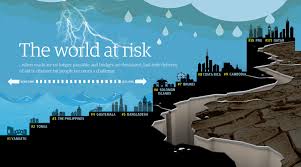Majoro to grapple with a myriad challenges in his stint - one of them, two centres of power within the ABC

Mr Mzimkhulu Sithetho
Managing Director of the Governance Institute for Sustainable Development and Editor-In-Chief of thizkingdom.com
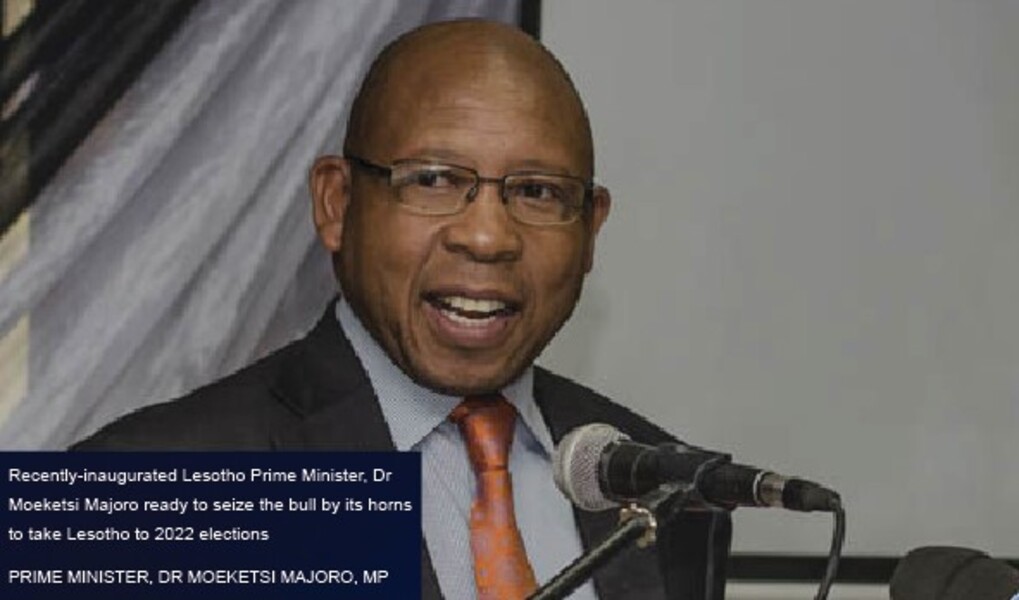
Background
The 4x4 coalition government came to its knees a couple of weeks ago, when coalition partners made submissions to parliamentary speaker, Sephiri Motanyane, demanding that the coalition has to come to an end. This followed an unpopular agreement signed with the main Opposition, DC some time in April 2020. This undertaking by a faction aligned to Deputy Leader, Mahao and some of the erstwhile PM, Thomas Thabane's lieutenants, did not sit well with the latter. It raffled feathers within the party and the DC, as it did not receive his blessings and those of his lieutenants in the ABC. It also had a chilling effect on DC, Leader Mathibeli Mokhothu's detractors. However, it has culminated in the inauguration of Dr Majoro, who takes over the reigns after a long-waiting, with leader Thabane playing a hide-and-seek. The inauguration of Majoro is a culmination of many episodes, firing of ministers, intervention by south Africa, posing as a facilitator and demanding a dignified and secure exit, Thabane's own delaying tactics to stall the process of regime change, bringing the army to the fore by Thabane and his endemic fight with Police Commissioner, Holomo Molibeli and Paseka Mokete. It finally happened, now it is time for strategic thinking and delivery.
Majoro and his rise to power
Majoro's rise to authoritative power has not been largely predicted before. It comes as a storm, but he is someone cynics would label, a compromise candidate. When the now former Prime Minister, Thabane challenged his followers while in self-imposed exile in Ficksburg in 2016, to search for his successor, it was not clear who would take reins from him. He said this at his 77th birthday, which was eked out in a foreign country. The position of deputy leader in the ABC had remained vacate for some time. This after departure of Tlali Khasu who had jumped ship to form his own thing with Pitso Maisa, after a long battle with the ABC NEC for defying orders to toe Thabane's line while in exile. Khasu had defied the odds, seeing his being reduced to nothing, when the leader is not there, the deputy takes over. As it could be expected, Khasu wanted to stamp his authority, taking advantage of Thabane's absence, that was not to be.
Then, some thought of Botha-Bothe MP, Motloi Maliehe, while some thought Thabane would handpick his successor. In 2018, the dust began to gather within the ABC's politburo, as the elective conference was approaching. Albeit, Princess Maliehe had been parachuted to the post in the interim by the then National Executive Committee (NEC) to fill a void within the structures of the party. The Princess did not show any vigour, then he soon got dismissible in the top ranks of the ABC, and even to take it further to its greener pastures, post Thabane. There was a feeling of a vacuum in the ABC, in as far as who would succeed Thabane when he goes as the conference drew nearer. Futuristic ABC MPs took upon themselves to frantically look for a formidable deputy, who would become Thabane's successor both in the party and government. Professor Nqosa Mahao's name was flagged and accepted among the politburo of ABC, but not with Thabane, it seemed. Mahao was successfully nominated to contest the election as a deputy leader, in readiness to take over the reins when the master steps down. He was pitted against Majoro, Maliehe and Prince.
As it is the case in the politics of Lesotho, the issue of his bonafide membership of ABC and also his political prowess subtly surfaced. As the dust towards the elective conference, which was now scheduled for early February 2019 gathered, sentiments against Mahao grew, especially within the top brass of the ABC. The leader, Thabane did not hide his feelings about Mahao and even insulted him in public, one of his weekly rallies, calling him a rag. This was clear indication that Thabane did not endorse Mahao's nomination for the candidacy to run in the race for the second most influential position in the party. This raised the ire and eyebrows of many and raffled the feathers within the party. That marked the beginning of a storm that has bedevilled the ABC today, which Thabane leads as a ghost from the grave. The naming of Mahao a rag by Thabane grew in currency that today, there is a faction within the ABC which is called likatana - rags. Mahao received the sympathy of many and as the judgement day approached (elective conference), he became a darling of many followers, prompted by the NEC's attempts to stop him from attending the conference, let alone being elected. He and those around him rose to the challenge and fought it hard in courts of law, to a successful end that saw him contest for the deputy leadership position, which he occupies today. When Mahao's candidacy and ability to participate in the elective conference was granted by the Court of Appeal, he won with outstanding numbers, thrashing Majoro and other contestants. At the hind sight, the Mahao family were backed by a theory that their late brother, Maaparankoe Mahao, laid his head on the block to face death in defence of Thabane. The theory goes to an extent of suggesting that his death placed Thabane and his counterparts who were then outside the country on a better position to receive the attention of SADC, which culminated in the formation of the Phumaphi Commission of Inquiry into the death of Mahao and the subsequent return of the exiled to Lesotho under the aegis of SADC.
Mahao survived rigours in this successful election as deputy leader of ABC. The theories of a novice in politics, a political newcomer, a political nonentity surfaced. In the midst of this, nobody was aware that Thabane had already anointed his own successor, that was to be Majoro. Majoro was nominated as a deputy to Thabane and the latter had endorsed his candidature. But this did not bode well with Thabane's henchmen, who file a petition in the courts of law to contest the outcome, this dragging for months until the Mahao faction became victorious. The courts outcomes put a nail on Majoro's dreams of succeeding Thabane. But Thabane fought in his corner to salvage him from going extinct and even used his authority to place Majoro as his deputy in the party against courts verdicts that gave green light to Mahao faction as a legitimate NEC. Majoro was now living in the political shadow of Thabane to survive the political tide.
When Thabane's woes came reached a high, after the Police Commissioner, Molibeli put spanners in the work, exposing Thabane and his wife being involve in the murder of his late wife, Lipolelo, he was forced to step down. A successor was mooted in the name of Majoro or Mosalemane MP, Sam Tsoinyane Rapapa, but parliamentarians opted for Majoro. The ABC-DC pact, which was marshalled under acrimonious times with Thabane, Majoro was now in good books with the Mahao faction and he was in good standing to take over. This depended on whether Thabane ultimately bowed down to pressure to leave office, which he did. This paved the way for Majoro to occupy the second most powerful office in the land, following the King's throne.
It has come thus far for the soft-spoken, but highly intellectual and professional young academician-turned politician. He is yet to see more tides in the sea of Lesotho's dangerous politics of bread-and-butter. Moeketsi Majoro (born 3 November 1961) is a Mosotho economist and politician who has been serving as the Prime Minister of the Kingdom of Lesotho since 2020. He was previously the Minister of Finance in the cabinet of Tom Thabane from 2017 to 2020. Majoro has been representing the Thetsane Constituency No. 33 in the National Assembly since his election in 2017. He was formerly a Senator and the Minister of Development Planning from 2013 to 2015. Majoro is a member of the All Basotho Convention (ABC). Moeketsi Majoro was born on 3 November 1961 in Tsikoane, Leribe District, in Basutoland. He obtained a BA degree in Economics from the National University of Lesotho and achieved both a PhD in Natural Resource Economics and a Master of Science degree in Agricultural Economics from the Washington State University. Majoro was a lecturer in economics at the National University of Lesotho between 1991 and 2000. He joined the finance ministry as a fiscal analyst in 2000 and worked in the position before he was promoted to be the principal secretary in 2004. He served the Africa Group 1 Constituency of the International Monetary Fund (IMF) as both Executive Director and Alternate Executive Director between 2008 and 2012.[1]
In January 2013, Majoro was appointed Minister of Development Planning by Prime Minister Tom Thabane. He had earlier been appointed as a Senator. The government was voted out in the 2015 general election. In the 2017 general election, he was elected the MP for the Thetsane Constituency No. 33. Thabane returned as Prime Minister and appointed him the Minister of Finance.[1]
In 2020, Thabane came under pressure to resign due to his alleged involvement in his ex-wife's murder. On 22 March 2020, Majoro was elected by the ABC Group in the National Assembly as Thabane's successor with 26 out of 46 votes.[2] In addition to large parts of the ABC and the Democratic Congress, other parties have pledged to form a government under Majoro.[3] On 12 May, Majoro was announced as the incoming Prime Minister.[4] Thabane announced his resignation on 18 May.[5] Majoro was sworn in as Prime Minister on 20 May.
Two centres of power within the ABC
As Majoro takes over, he might become a lame duck within the ABC as he is not a leader of the party, let alone, being a member of the National Executive Committee (NEC). By right, he has to take instructions from Prof Mahao and the party Secretary-general, Lebohang Hlaele, who now wield political power after a long battle for control of the party. With Thabane now gone, at least in the government and as a result of age, the NEC is in charge of the ABC faction led by his former nemesis. Majoro's contribution to the coalition government has to draw strength from the ABC NEC. He can only survive only if he is diplomatic and politically mature to master the relationship between party and government and that in African politics, one is a deployee of his own party. In American politics, he could succeed, even without a political clout in the party politics. If he does not bow down to Mahao and Hlaele, who as it can be expected, have their knives blazing for him if he dares get it wrong. Hlaele is rumoured to have declined an offer to serve in government in favour of staying in the party. He might be calculating a future benefit of being strong in the party and then slowly gravitating to the government. Hlaele's undertaking is a clever one, but has adverse implications for Majoro who is now, a nonentity in the ABC top echelons, unless the next elective conference is called. He cannot be salvaged by Thabane, especially when a great chunk of his faction has succumbed to the Mahao faction. He has to rein in those who are sitting by the side lines of the party, the core of state house (aka mabulumara) faction which has not formed part of his inner circle in government. these might douse the fires if he does not reign them in.
Leading a coalition government - rule by compromise
It is a given that, like any other coalition, Majoro will have to apply emotional and intellectual quotients to win through as he has to do a lot of compromising for him to succeed. Without necessarily vying for a pension for prime minister, he has to work hard to ensure that to get to 2022, it wrests upon his shoulders to bring the various factions together. The first faction is that in his party, the Mahao-led, the second, the Ntsekele-led, third, the opposition-led, fourth, the coalition partners-led. It cannot be totally ruled out that the clique that threw its weight behind Thabane at the last minute and has not been considered in the new cabinet will rise from the grave and regroup to dislodge Majoro. This crique is key to Majoro's success in the two-year stint on the helm of government. He has a mammoth role to bring all these forces together in one place, to rally behind his vision. If he wants to be a force to be reckoned with beyond 2022, then he must demonstrate his vigour beyond reasonable doubt. His predecessor failed dismally in the first coalition of 2012-2014 to reign in all the interested parties under control. He was faced with a myriad of challenges, encompassing his first stint as a prime minister and to lead this kind of a government with no experience. Now that Thabane leaves the government that is led by the ABC in a sort of divided party, if he dares play the ghost-ruling-from-the-grave tactic, he will be opening a can of worms for Majoro and put the last nail on his political and executive coffin. He will weaken him because his (Thabane's) will be a sort of revenge on those who orchestrated his downfall. He must let him prove himself to his detractors. If Majoro fails, it must be out of his lack of wit to lead the government without a political clout, which naturally comes from leading a party. Even if he takes wrong decisions, he must be bold to stand up and face consequences and he will be excused for that in the long-run. People have made destructive decisions, but voters have forgiven them. Some are even vouching for their return in comparison with the prevailing situation. If he succeeds, it must be out of his wisdom without the mentioned.
Leading a government with a set time-frame (two-years)
Majoro's mandate is not an open cheque, as he has to serve the country and lead it towards national elections naturally set for 2022. Escaping a poll after the collapse of the 2017-2022 coalition government has prompted a caretaker government (in technical terms) to lead the nation to 2022. So, he is bound to operate within the parameters of 2020-2022. He might be warming a chair for someone, or for himself if he will prove himself to both ABC general membership and the general Basotho nation. If he wins not only the minds, but the hearts of Basotho with his sterling performance in the short stint, he will rise up a substantive prime minister after the 2022 national elections. If he is able to bring together the different forces within the ABC, he will rise up a leader of the party and ultimately leader of the government that the ABC will lead after the 2022 poll. But if he fumbles, given the many challenges facing his short stint, he will be remembered as a prime minister that only sat to warm a chair for someone, however, he will remain in the history books as a prime minister, just like Sekhonyana Maseribane in 1965. As an economist, an academician and someone who has had a stint in international affairs, he stands a good chance to shine, in the mist of the challenges facing this country.
Leading a new government formed during a crisis (COVID-19)
Majoro leads Lesotho at a critical time when the world, including Lesotho, is facing a predicament of COVID-19. The economic growth paralysis brought about by this pandemic has a chilling effect on the success of the country. He had to forestall the 2020/2021 budget bill in parliament to give way to adjustments that have to be made in view of the pandemic. Already, financial resources have been drained to address the pandemic. The economy is on its knees, notwithstanding that it was already crumbling. The private sector, which was prodded as the backbone of the economy is also crumbling, crying out for help. Where will he get the resources to resuscitate the economy? Where will he get the resources to fund the COVID-19? Where will the resources come from for building a strong private sector? The whole world, from which the donor community, which is his only hope could come, is also fraying at the seams. He needs wit beyond his own abilities to ably transcend these predicaments.
Majoro's political prowess, acumen and his ability to lead put to a test
Though Majoro, on the surface value, looks a man of stature, he is not a popular figure. He does not command any power within his own ranks, except in his constituency, Thetsane No:33, which he won in two successive elections. He has no political prowess to bring together different forces with varying needs. He is a man of the books and could only lead by the book (intellect). But, much as leaders are born, many leaders have been made. With the ability to learn fast, Majoro can be moulded into a grand leader. At least he is an intellectual who can grab things easily, so transformation of him into what Basotho need is a grand opportunity for him. Who knows, he might become the Joshua that Basotho need out of the old stock whose track of record hold little for this nation that has frayed in the seams for four decades and a half. He is better placed in the geopolitics of the world to navigate his niche. Having held a powerful post of minister of finance has placed him at the help of geopolitics of economies of the world. His exposure to leadership of international organisations like the IMF has also added a mark.
Most Read
Reforms, Elections and Democratic Stability in Lesotho
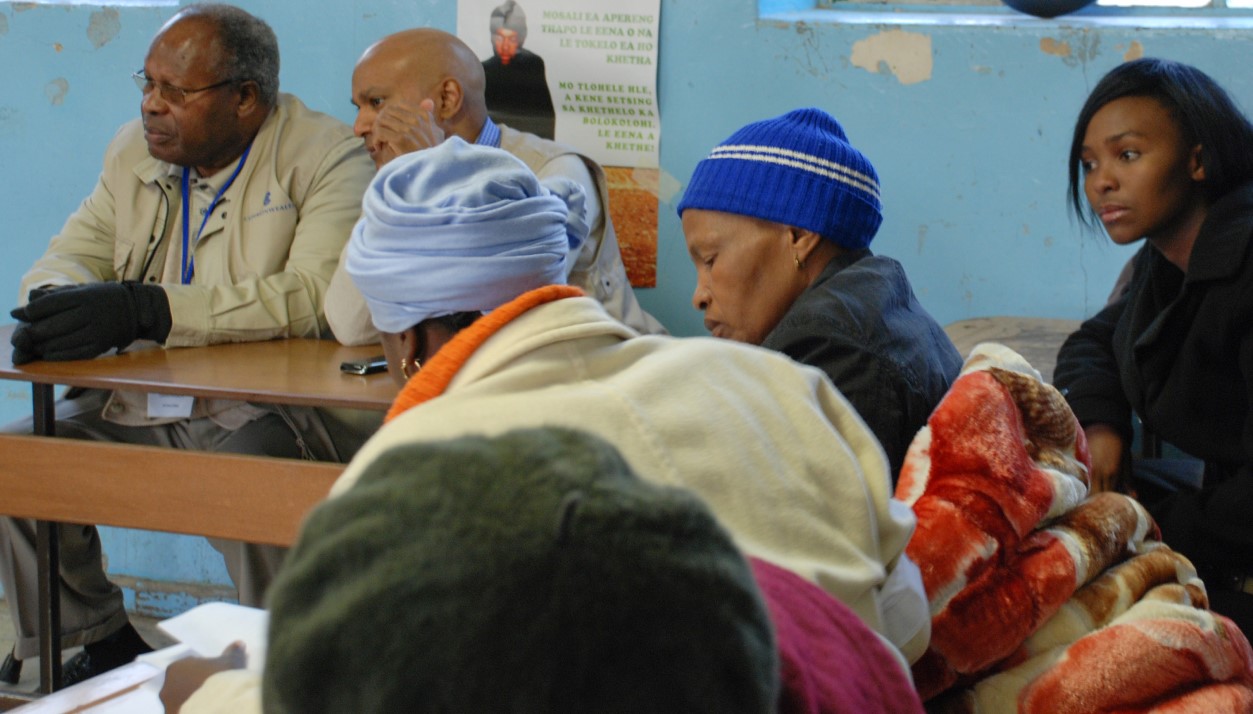
Organizations and companies go through a rough patch

The cooling of the political temperatures came with the BAP joining the bandwagon after a season of political agitation and chess games, reflecting political anomalies in the system of political governance of Lesotho:

Related Stories
Close Examination of Lesotho’s Diaspora Management in South Africa in Light of the Recently Inaugurated South Africa-Lesotho Bi-National Commission (BNC)
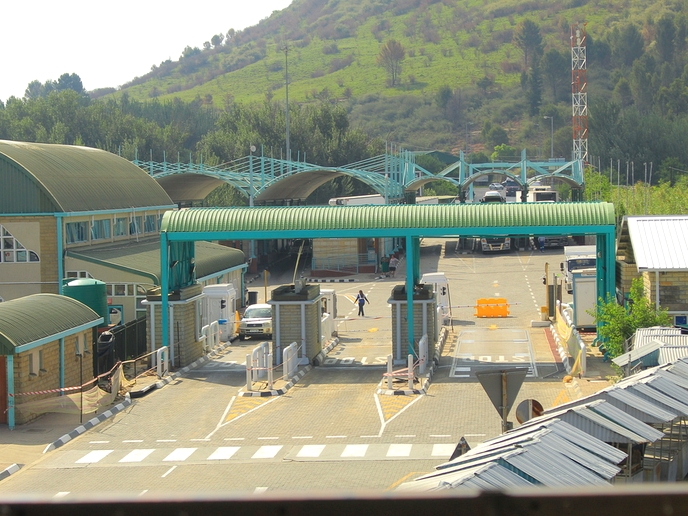
The RFP and its governing partners walk a tightrope on the Local Government Elections
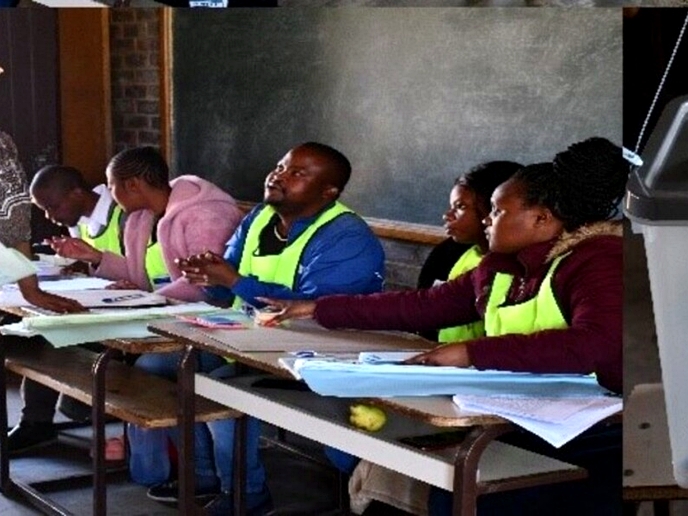
Reforms, Elections and Democratic Stability in Lesotho
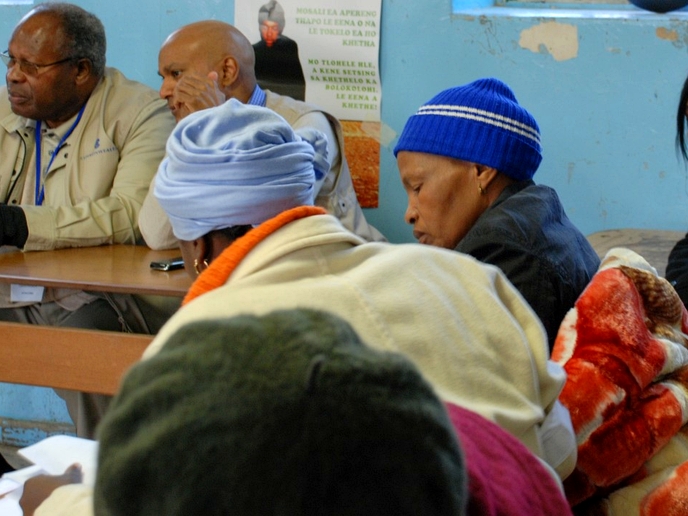
Opinion Vote Polls
Do you think the existing government is going in the right direction to benefit the people of the country?
Subscribe for your daily newsletters
Enter your email to subscribe to our newsletter.

